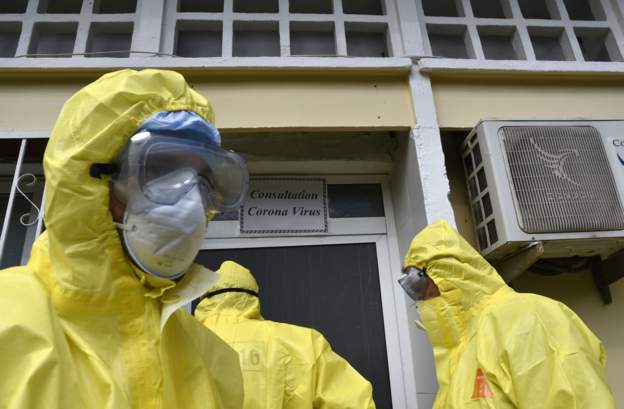Algeria and Egypt have confirmed more new cases of coronavirus infections signaling that Africa is now recording increased cases.
Until the weekend, the continent had confirmed only three cases, one each in Egypt, Algeria and Nigeria.
But Algerian officials say a 53-year-old woman and her 24-year-old daughter have tested positive for the virus.
Algeria’s health ministry said on Sunday that the two patients have been placed in isolation in Blida province south of the capital, Algiers.
It gave further details saying the two had hosted a man and his daughter from France who tested positive for coronavirus after their return.
Meanwhile Egypt’s health ministry on Sunday also announced that another foreigner had tested positive for coronavirus.
That patient has been isolated and undergoing treatment, making it the second case in the country.
Egyptian officials say the first coronavirus patient announced in February has now recovered.
On Saturday Egyptian authorities said they were testing staff at the site where tourists later diagnosed with the novel coronavirus had stayed before returning to France.
Egyptian prime minister, Mostafa Madbouli said Cairo had been informed of the cases that are “part of a tourist group visiting in Egypt between February 5-16”.
“Workers at the site where the group stayed have been tested” for the virus, the statement said without revealing its location.
In Nigeria where the first case in West Africa was recorded, President Muhammadu Buhari has urged citizens to “refrain from panic” adding that “undue alarm would cause more harm than good”.
Almost 90,000 people in 60 countries have now been infected by Coronavirus with more than 3,000 deaths although majority of those deaths are in China’s Hubei province.
Chinese officials say more than 36,117 patients infected with the novel coronavirus have been discharged from hospitals.
Victims of coronavirus often suffer from respiratory illness and this new strain of coronavirus was not previously identified in humans.
The virus is a global public health emergency, according to the World Health Organisation and there are concerns it could soon turn out into a global pandemic.
WHO advises that people stay at home if they begin to feel unwell, even with mild symptoms such as headache and a slight runny nose, until they recover.
Avoiding contact with others and visits to medical facilities will allow these facilities to operate more effectively and help protect people and others from possible COVID-19 and other viruses.
Source: Africafeeds.com



